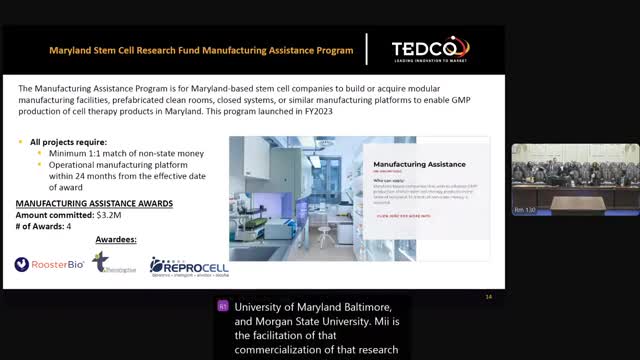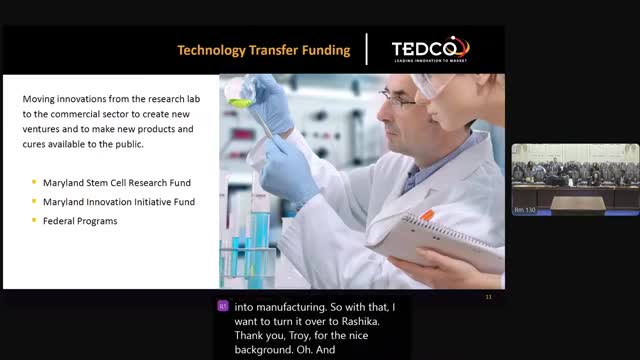Article not found
This article is no longer available. But don't worry—we've gathered other articles that discuss the same topic.

Maryland Innovation Initiative plans Baltimore Innovation Initiative to extend commercialization supports to 20 institutions

Maryland Stem Cell Research Fund: TEDCO brief highlights clinical progress, economic returns and new manufacturing grants

